Investigative Report Reveals PBM Drug Pricing “Shell Game”
An investigative report published by Jay Olstad and Steve Eckert of Minnesota NBC affiliate KARE 11 provides clear insight into how pharmacy benefit managers (PBMs) “quietly raise prices for their captive customers instead of lowering them.” The report is timely, given last week’s hearing on PBMs. It offers additional evidence of PBM abuses and supports our belief that the PBMs’ testimony before Congress last week is contradicted by their real-world actions.
The PBM drug pricing “shell game”
Jay Olstad and Steve Eckert of KARE 11, Minnesota’s NBC affiliate, published an investigative report last week titled What’s the Real Cost of Prescription Drugs? with commentary from Dr. Stephen Schondelmeyer, a professor of Pharmaceutical Management and Economics at the University of Minnesota and one of the most renowned industry experts.
In the report, Olstad and Eckert discuss the case of local resident Curt Burshem. A member of Mr. Burshem’s family suffers from a kidney disorder for which they need a drug named mycophenolate mofetil. His family has health insurance through his employer which is administered by CVS.
Earlier this year Mr. Burshem filled a prescription for a 30-day supply of the medication at a local CVS Pharmacy. The price of the drug was $104, or about $.87 per pill, most of which was covered by his insurance. But when time came to renew the prescription the plan recommended he receive a 90-day supply of the medication through CVS’s mail order pharmacy as it is generally less expensive to do so.
When he received the bill for the 90 day prescription from CVS he was stunned to find the drug priced at $2,382, an increase of nearly 700%, with a co-pay of $476.55. While he initially suspected this to be a case of another drug company dramatically raising prices more or less overnight, a call to a local independent pharmacy revealed this to be false.
The local independent pharmacy was charging $259.02 for the same 90-day supply. What’s more, KARE 11 contacted several other local pharmacies in the area, none of which were priced anything close to CVS and one of which was charging $185 for a 90-day supply. As a result, Mr. Burshem is paying 160% more out of pocket and his employer’s health plan is paying 1,200% more.
Dr. Schondelmeyer suggests that “this particular example is a perfect example of a shell game,” that “illustrates a dirty secret in the prescription drug business.” The article explains:
Pharmacy benefit management companies – known as PBMs – go to employers promising to save them money by managing their insurance prescription drug claims and negotiating discounts, said Schondelmeyer.
In return, Schondelmeyer says PBMs – like CVS Caremark – become the exclusive prescription provider for people in the company’s insurance plan, in effect creating a mini-monopoly.
Schondelmeyer says PBMs tell employers they can save them money by handling prescription claims more efficiently and by negotiating volume discounts.
The problem, according to Schondelmeyer, is that PBMs aren’t required to disclose the prices they’ve negotiated.
He says that leaves the door open for PBMs to quietly raise prices for their captive customers instead of lowering them.
“They think nobody would cheat us that much,” he told KARE 11. “But they do.”
